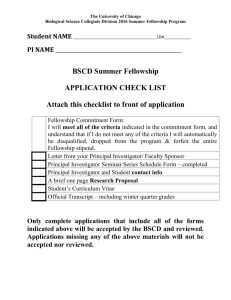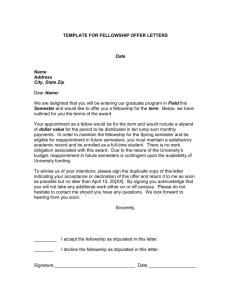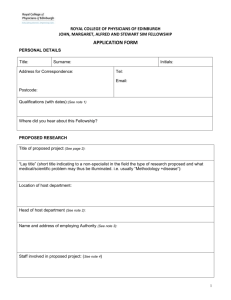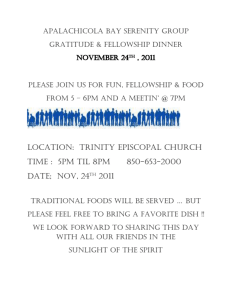Clinical student Anna McKoy was recently notified of her acceptance... fellowship program with the Center for Advanced Practice (CAP). ...
advertisement
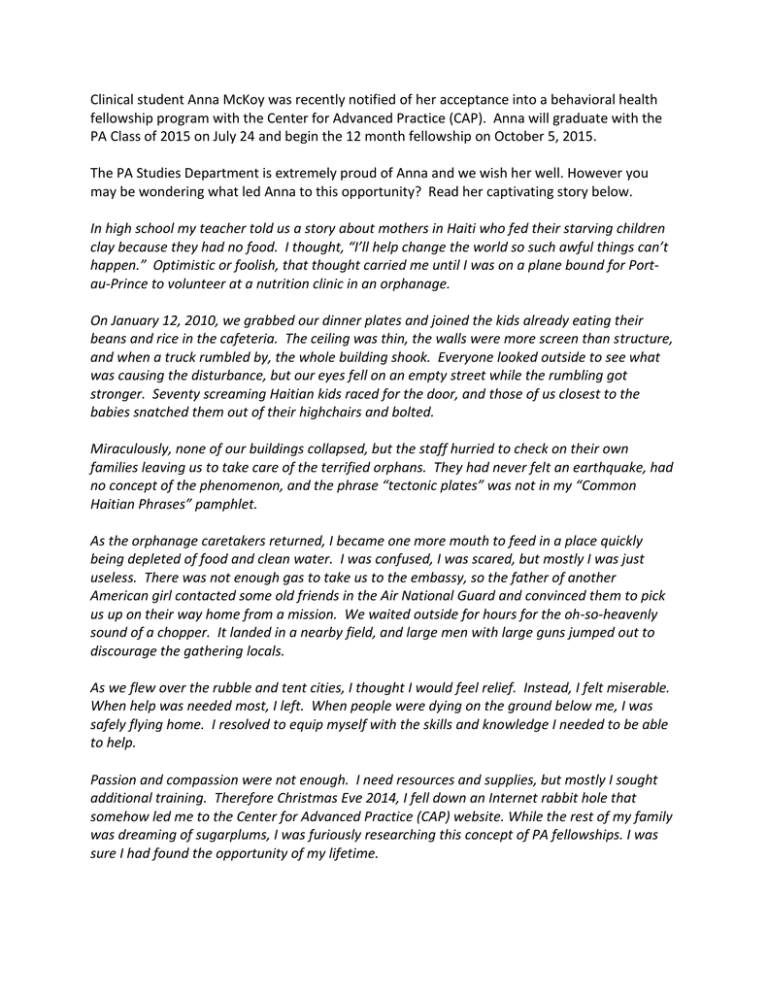
Clinical student Anna McKoy was recently notified of her acceptance into a behavioral health fellowship program with the Center for Advanced Practice (CAP). Anna will graduate with the PA Class of 2015 on July 24 and begin the 12 month fellowship on October 5, 2015. The PA Studies Department is extremely proud of Anna and we wish her well. However you may be wondering what led Anna to this opportunity? Read her captivating story below. In high school my teacher told us a story about mothers in Haiti who fed their starving children clay because they had no food. I thought, “I’ll help change the world so such awful things can’t happen.” Optimistic or foolish, that thought carried me until I was on a plane bound for Portau-Prince to volunteer at a nutrition clinic in an orphanage. On January 12, 2010, we grabbed our dinner plates and joined the kids already eating their beans and rice in the cafeteria. The ceiling was thin, the walls were more screen than structure, and when a truck rumbled by, the whole building shook. Everyone looked outside to see what was causing the disturbance, but our eyes fell on an empty street while the rumbling got stronger. Seventy screaming Haitian kids raced for the door, and those of us closest to the babies snatched them out of their highchairs and bolted. Miraculously, none of our buildings collapsed, but the staff hurried to check on their own families leaving us to take care of the terrified orphans. They had never felt an earthquake, had no concept of the phenomenon, and the phrase “tectonic plates” was not in my “Common Haitian Phrases” pamphlet. As the orphanage caretakers returned, I became one more mouth to feed in a place quickly being depleted of food and clean water. I was confused, I was scared, but mostly I was just useless. There was not enough gas to take us to the embassy, so the father of another American girl contacted some old friends in the Air National Guard and convinced them to pick us up on their way home from a mission. We waited outside for hours for the oh-so-heavenly sound of a chopper. It landed in a nearby field, and large men with large guns jumped out to discourage the gathering locals. As we flew over the rubble and tent cities, I thought I would feel relief. Instead, I felt miserable. When help was needed most, I left. When people were dying on the ground below me, I was safely flying home. I resolved to equip myself with the skills and knowledge I needed to be able to help. Passion and compassion were not enough. I need resources and supplies, but mostly I sought additional training. Therefore Christmas Eve 2014, I fell down an Internet rabbit hole that somehow led me to the Center for Advanced Practice (CAP) website. While the rest of my family was dreaming of sugarplums, I was furiously researching this concept of PA fellowships. I was sure I had found the opportunity of my lifetime. Why a fellowship? Ever since returning from Haiti, I’ve felt strongly that just because patients are part of an underserved population, that in no way means that when they are finally served, that service should be anything but the highest quality. Good intentions took me to Haiti, but when push came to shove, my lack of training turned good intention on its head. In the same way, I recognize that good intentions will not be enough as I move forward in my career. If I want to work in challenging environments, I don’t want to rush in headlong and drown in good intentions. I want to wade in as properly equipped as I can be. As a PA student interested in pursuing behavioral health, especially among adolescents, I chose the CAP fellowship because I believe it is the best place to equip myself with the specific skills and experiences necessary to fulfill those goals. What is the CAP fellowship? The CAP fellowship is a relatively young project designed to help Advanced Practitioners seamlessly enter the workforce. The program was designed to allow new graduates and experienced PAs the opportunity to gain additional training in a field that might interest them. The program is a collaborative program designed for NPs and PAs to learn and train together. The behavioral medicine track is new this year and my cohort of three will be the first. We will be working in and around Charlotte, NC. We will gain experience in inpatient, outpatient, emergency, pediatric, and adult mental health treatment facilities. On top of this, we will meet one day a week for didactics, discussions, and presentations. The program is a total of 12 months, and we will be given a stipend during that time. The end goal is to produce competent, confident PAs who are able to hit the ground running when they enter the work force.



